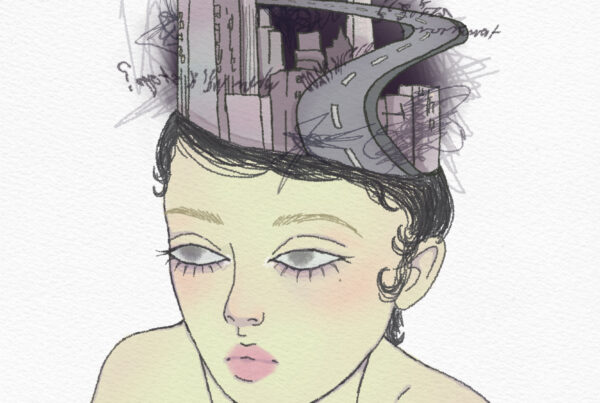
Clash of cultures regarding mental health in Malaysia
As the world faces the worst global pandemic since the 1918 Spanish Flu, the need for mental health support has never been greater. However, it’s acceptance may vary greatly among generations when we look at countries with collectivist communities like Malaysia, where underage youths seeking mental health treatment face an unexpected barrier: their parents.
Clash of cultures regarding mental health in Malaysia
As the world faces the worst global pandemic since the 1918 Spanish Flu, the need for mental health support has never been greater. However, it’s acceptance may vary greatly among generations when we look at countries with collectivist communities like Malaysia, where underage youths seeking mental health treatment face an unexpected barrier: their parents.

Photo by John Moeses Bauan on Unsplash

Photo by John Moeses Bauan on Unsplash
Today, approximately 30% of Malaysians aged 16 years or older struggle with mental health problems, a figure of around 4.2 million as of 2015. However, reports suggest 10-35% of people who could benefit from mental health support are not receiving treatment (Hassan et al., 2018). Acceptance of mental health can be very different between generations, and very often leads to conflict between parents and their children. This article will explore the challenges in introducing mental health awareness to Malaysian parents, due to a clash of cultures between yesterday’s ingrained collectivism and the individualism of today’s youth.
With access to social media, mental health awareness in Malaysia has been increasing among university students (e.g. the National Strategic Mental Health Action Plan, n.d.; Ministry of Health 2016; Kotera et al., 2020). However, parents are still apprehensive when it comes to embracing mental health. Ms Katyana Azman, a child psychologist working in Pantai Hospital, Kuala Lumpur, and one of the roughly 300 psychologists in Malaysia, theorises that parental anxiety in raising a child may play a role in this apprehension. ‘Mental health is still a relatively new concept to parents nowadays. Parents can’t anticipate what might happen when they go against the norm, especially when trusting their child to a random stranger.’ This worry may be compounded by the fact that parents may not be too familiar with the role of a psychologist, as mental health in most developing countries is generally a neglected area and dominated by the medical profession (Haque, 2005; Hassan et al., 2018). ‘Parents will more likely stick with more familiar, albeit old-fashioned methods of dealing with mental health, to be able to protect and advise their children.’
Unfortunately, sticking with the traditional path means people with mental illness would commonly be referred to religious practitioners or shamans, rather than medical professionals. Each of Malaysia’s three main ethnic groups: Malays (61.7%), Chinese (20.8%) and Indians (6.2%) have their own traditional interpretations of mental health (Hassan et al., 2018). ‘The fact is, mental health doesn’t click with major religions.’ Ms Katyana states. The mindset that that mental illness is an outcome of abandoning or neglecting traditional values is still prevalent in modern malay society (Haque & Masuan, 2002; Hassan et al., 2018). This is apparent by the vocabulary used to associate mental illness, such as gila (insanity) or sakit jiwa (illness of the soul), which are quite negative terms and may contribute to mental health still widely being seen as a taboo subject in Malaysia (Haque, 2005; Hassan et al., 2018). This is especially the case among conservative households where parents prioritize religious values. As a result, conservative households would react counterproductively by clinging to their roots and resisting the modern mindset.
“Many Malaysian parents feel problems should stay within families, to save face and not inconvenience others.”
The fact that families in Malaysia are usually collectivistic further complicates the stigma towards mental health. Kotera et al. (2020) observed that while individualistic, UK students are more concerned with how they would see themselves if they had a mental health problem, collectivistic, Malaysian students are more concerned with how other people would see them. There is a saying in Malaysia: ‘Don’t air your dirty laundry.’ Many parents feel problems should stay within families, to save face and not inconvenience others. Parents’ views of mental health may be influenced by the outmoded Freudian notions of dysfunctional family relationships being critical to mental illness onset (Laing 1967; Guarnaccia 1998; Aldersey & Whitley, 2015). This may cause parents to worry about being blamed for their child’s mental illness. To avoid the risk of a ruined family reputation, parents would try to hide the mental illness of their child from the extended family or the wider community (Aldersey & Whitley, 2015). A child would therefore be discouraged from opening up about mental health, as they are taught the risk of potential embarrassment from their social circles would outweigh the benefit derived from medical and psychological consultations (Kotera et al., 2020). Ms Katyana recalls a quote: ‘We raised a generation meant to live outside of a box, but expect them to fit into boxes.’ The appearance of stigma towards mental health is more common in collectivistic communities, as people think it’s selfish to put their needs before the collective, in this case being the family name.’
Resentment may also play a part in a parent’s resistance towards mental health. Ms Katyana speculates that ‘Although parents also faced problems about mental health back in their day, solution tools were not available and they were forced to deal with it by themselves. They may think ‘we went through it and turned out fine, why should this generation get extra help?’ Parents may refuse to believe that mental illness was the reason behind an individual’s behavior or even suggest they were ‘making it all up’ (Aldersey & Whitley, 2015). EnglandKennedy and Horton (2011) state that this breakdown in trust and communication between the patient and their family can impede the recovery process (Aldersey & Whitley, 2015). In Malaysia, there is also the additional issue of understaffing in psychiatry. (Haque, 2005; Yusof et al., 2019) ‘There are around 400 Psychologists for a population of 33 million. And that figure is spread out between private and public healthcare. Because of demand, the waiting lists for public healthcare is very long, and we have to pay a higher price for more support.’ Ms Katyana states. If parents have prejudices towards mental health, they may not see the justification to fork out the extra cash for their child to have better mental health support. Parents’ negative mental health attitudes can also cause patients to feel ashamed (Kotera et al., 2019) as they are made to believe those who suffer from mental health are weak, incompetent, and unable to take care of themselves (Kotera & Maughan, 2020; Kotera et al., 2020).
Efforts for wider acceptance of mental health support
Just as family could also be a barrier through stress, stigma, and lack of understanding, research has shown family members can facilitate the recovery process of mental illness by providing moral support, practical support and by serving as an intrinsic motivation for recovery, which demonstrates the importance of family psychoeducation in promoting recovery (Aldersey & Whitley, 2015). This is especially important in a multi-racial Malaysia that is rooted in traditional beliefs when it comes to mental illness (Haque, 2005; Yusof et al., 2019). ‘One must not sideline the importance of parental cooperation, especially in Eastern or Asian cultures.’ Ms Katyana stressed.
The key in breaking years of ingrained stigma is to be flexible and patient. ‘We should listen carefully to identify the main priorities of our audience, and tailor our approach towards their priorities. This could for instance be family relationships, academic success or religion’, Ms Katyana advises. For example, if parents are worried about school performance, we could introduce evidence about mental health potentially affecting academic performance (Kotera et al. 2020). When we approach the topic with consideration toward their priorities, they will be more receptive towards psychoeducation. ‘Not every approach works with every client. Tailoring the techniques to other cultures is necessary in order to have effective results.’ Ms Katyana stressed.
“Although it is important to show respect towards our parents, we should take the initiative to put our mental health first.”
As Psychology students, we can do our part by normalising the conversation around mental health within our student community. Research suggests that promoting a collective understanding can be very beneficial in helping students from collectivist backgrounds break the taboo surrounding mental health (Kotera et al. 2020).
For those seeking mental health support but are unable to obtain support from their family members, Ms Katyana recommends starting with helplines and continuing with non-government organisations (NGOs) that do not require parental participation. Usually, school counsellors won’t involve family unless you give your consent. Although it is important to show respect towards our parents, especially within Asian cultures, we should take the initiative to put our mental health first.
In sum, mental health problems are common and can affect anyone without age or race boundaries. Greater awareness about mental health and early diagnosis can reduce the statistic of suffering from mental health related problems (Hassan et al., 2018). There is a significant challenge in introducing mental health awareness to Malaysian parents, due to a lack of psychoeducation and prevalence of taboo towards mental health, which results in anxiety and resentment among the older generation. However, psychiatrists can work around this barrier by tailoring the conversation to the parents’ concerns and priorities. Psychology students can also do their part by normalising the conversation around mental health.
Malaysia has a long way to go in becoming more aware of the importance of mental health and accepting mental health care. But with passionate professionals like Ms Katyana, and eager psychology students coming back to challenge the status quo, there’s promise that this generation rift can be bridged. <<
Ms Katyana Azman is a resident Child psychologist working in Pantai Hospital, Kuala Lumpur, Malaysia. She is passionate about changing the narrative about mental health in the workplace and Malaysia through Psychoeducation, engaging media via print, radio, television. We thank her for her unique insight in this article.
References
– Aldersey, H.M., Whitley, R. Family Influence in Recovery from Severe Mental Illness. Community Ment Health J 51, 467–476 (2015).
– EnglandKennedy, E. S., & Horton, S. (2011). “Everything that I thought that they would be, they weren’t:” Family systems as support and impediment to recovery. Social Science & Medicine, 73(8), 1222-1229.
– Guarnaccia, P. J. (1998). Multicultural experiences of family caregiving: A study of African American, European American, and Hispanic American families. New Directions for Mental Health Services, 1998(77), 45-61.
– Haque, A. (2005). Mental health concepts and program development in Malaysia. Journal of Mental Health, 14(2), 183-195.
– Haque, A., & Masuan, K. A. (2002). Perspective: religious psychology in Malaysia. The International Journal for the Psychology of Religion, 12(4), 277–289.
– Hassan, M. F. bin, Hassan, N. M., Kassim, E. S., & Hamzah, M. I. (2018). Issues and Challenges of Mental Health in Malaysia. International Journal of Academic Research in Business and Social Sciences, 8(12), 1685–1696.
– Kotera, Y., & Maughan, G. (2020). Mental health of Irish students: Self-criticism as a complete mediator in mental health attitudes and caregiver identity.
– Kotera, Y., Ting, S. H., & Neary, S. (2020). Mental health of Malaysian university students: UK comparison, and relationship between negative mental health attitudes, self-compassion, and resilience. Higher Education, 1-17.
– Laing, R. D. (1967). The politics of experience and the bird of paradise, Harmondsworth (Penguin Books) 1967.
– Ministry of Health. (2016). Press statement by Minister of Health Malaysia. Author. Retrieved from http://www.moh.gov.my/english.php/database_stores/
store_view_page/22/451. Accessed 15 Nov 2019
– Yusof, Y., Ahmad Ramli, F. Z., & Mohd Noor, N. (2019). Mental health social work in Malaysia: A study exploring its importance. International Social Work, 62(1), 283-294.
Today, approximately 30% of Malaysians aged 16 years or older struggle with mental health problems, a figure of around 4.2 million as of 2015. However, reports suggest 10-35% of people who could benefit from mental health support are not receiving treatment (Hassan et al., 2018). Acceptance of mental health can be very different between generations, and very often leads to conflict between parents and their children. This article will explore the challenges in introducing mental health awareness to Malaysian parents, due to a clash of cultures between yesterday’s ingrained collectivism and the individualism of today’s youth.
With access to social media, mental health awareness in Malaysia has been increasing among university students (e.g. the National Strategic Mental Health Action Plan, n.d.; Ministry of Health 2016; Kotera et al., 2020). However, parents are still apprehensive when it comes to embracing mental health. Ms Katyana Azman, a child psychologist working in Pantai Hospital, Kuala Lumpur, and one of the roughly 300 psychologists in Malaysia, theorises that parental anxiety in raising a child may play a role in this apprehension. ‘Mental health is still a relatively new concept to parents nowadays. Parents can’t anticipate what might happen when they go against the norm, especially when trusting their child to a random stranger.’ This worry may be compounded by the fact that parents may not be too familiar with the role of a psychologist, as mental health in most developing countries is generally a neglected area and dominated by the medical profession (Haque, 2005; Hassan et al., 2018). ‘Parents will more likely stick with more familiar, albeit old-fashioned methods of dealing with mental health, to be able to protect and advise their children.’
Unfortunately, sticking with the traditional path means people with mental illness would commonly be referred to religious practitioners or shamans, rather than medical professionals. Each of Malaysia’s three main ethnic groups: Malays (61.7%), Chinese (20.8%) and Indians (6.2%) have their own traditional interpretations of mental health (Hassan et al., 2018). ‘The fact is, mental health doesn’t click with major religions.’ Ms Katyana states. The mindset that that mental illness is an outcome of abandoning or neglecting traditional values is still prevalent in modern malay society (Haque & Masuan, 2002; Hassan et al., 2018). This is apparent by the vocabulary used to associate mental illness, such as gila (insanity) or sakit jiwa (illness of the soul), which are quite negative terms and may contribute to mental health still widely being seen as a taboo subject in Malaysia (Haque, 2005; Hassan et al., 2018). This is especially the case among conservative households where parents prioritize religious values. As a result, conservative households would react counterproductively by clinging to their roots and resisting the modern mindset.
“Many Malaysian parents feel problems should stay within families, to save face and not inconvenience others.”
The fact that families in Malaysia are usually collectivistic further complicates the stigma towards mental health. Kotera et al. (2020) observed that while individualistic, UK students are more concerned with how they would see themselves if they had a mental health problem, collectivistic, Malaysian students are more concerned with how other people would see them. There is a saying in Malaysia: ‘Don’t air your dirty laundry.’ Many parents feel problems should stay within families, to save face and not inconvenience others. Parents’ views of mental health may be influenced by the outmoded Freudian notions of dysfunctional family relationships being critical to mental illness onset (Laing 1967; Guarnaccia 1998; Aldersey & Whitley, 2015). This may cause parents to worry about being blamed for their child’s mental illness. To avoid the risk of a ruined family reputation, parents would try to hide the mental illness of their child from the extended family or the wider community (Aldersey & Whitley, 2015). A child would therefore be discouraged from opening up about mental health, as they are taught the risk of potential embarrassment from their social circles would outweigh the benefit derived from medical and psychological consultations (Kotera et al., 2020). Ms Katyana recalls a quote: ‘We raised a generation meant to live outside of a box, but expect them to fit into boxes.’ The appearance of stigma towards mental health is more common in collectivistic communities, as people think it’s selfish to put their needs before the collective, in this case being the family name.’
Resentment may also play a part in a parent’s resistance towards mental health. Ms Katyana speculates that ‘Although parents also faced problems about mental health back in their day, solution tools were not available and they were forced to deal with it by themselves. They may think ‘we went through it and turned out fine, why should this generation get extra help?’ Parents may refuse to believe that mental illness was the reason behind an individual’s behavior or even suggest they were ‘making it all up’ (Aldersey & Whitley, 2015). EnglandKennedy and Horton (2011) state that this breakdown in trust and communication between the patient and their family can impede the recovery process (Aldersey & Whitley, 2015). In Malaysia, there is also the additional issue of understaffing in psychiatry. (Haque, 2005; Yusof et al., 2019) ‘There are around 400 Psychologists for a population of 33 million. And that figure is spread out between private and public healthcare. Because of demand, the waiting lists for public healthcare is very long, and we have to pay a higher price for more support.’ Ms Katyana states. If parents have prejudices towards mental health, they may not see the justification to fork out the extra cash for their child to have better mental health support. Parents’ negative mental health attitudes can also cause patients to feel ashamed (Kotera et al., 2019) as they are made to believe those who suffer from mental health are weak, incompetent, and unable to take care of themselves (Kotera & Maughan, 2020; Kotera et al., 2020).
Efforts for wider acceptance of mental health support
Just as family could also be a barrier through stress, stigma, and lack of understanding, research has shown family members can facilitate the recovery process of mental illness by providing moral support, practical support and by serving as an intrinsic motivation for recovery, which demonstrates the importance of family psychoeducation in promoting recovery (Aldersey & Whitley, 2015). This is especially important in a multi-racial Malaysia that is rooted in traditional beliefs when it comes to mental illness (Haque, 2005; Yusof et al., 2019). ‘One must not sideline the importance of parental cooperation, especially in Eastern or Asian cultures.’ Ms Katyana stressed.
The key in breaking years of ingrained stigma is to be flexible and patient. ‘We should listen carefully to identify the main priorities of our audience, and tailor our approach towards their priorities. This could for instance be family relationships, academic success or religion’, Ms Katyana advises. For example, if parents are worried about school performance, we could introduce evidence about mental health potentially affecting academic performance (Kotera et al. 2020). When we approach the topic with consideration toward their priorities, they will be more receptive towards psychoeducation. ‘Not every approach works with every client. Tailoring the techniques to other cultures is necessary in order to have effective results.’ Ms Katyana stressed.
“Although it is important to show respect towards our parents, we should take the initiative to put our mental health first.”
As Psychology students, we can do our part by normalising the conversation around mental health within our student community. Research suggests that promoting a collective understanding can be very beneficial in helping students from collectivist backgrounds break the taboo surrounding mental health (Kotera et al. 2020).
For those seeking mental health support but are unable to obtain support from their family members, Ms Katyana recommends starting with helplines and continuing with non-government organisations (NGOs) that do not require parental participation. Usually, school counsellors won’t involve family unless you give your consent. Although it is important to show respect towards our parents, especially within Asian cultures, we should take the initiative to put our mental health first.
In sum, mental health problems are common and can affect anyone without age or race boundaries. Greater awareness about mental health and early diagnosis can reduce the statistic of suffering from mental health related problems (Hassan et al., 2018). There is a significant challenge in introducing mental health awareness to Malaysian parents, due to a lack of psychoeducation and prevalence of taboo towards mental health, which results in anxiety and resentment among the older generation. However, psychiatrists can work around this barrier by tailoring the conversation to the parents’ concerns and priorities. Psychology students can also do their part by normalising the conversation around mental health.
Malaysia has a long way to go in becoming more aware of the importance of mental health and accepting mental health care. But with passionate professionals like Ms Katyana, and eager psychology students coming back to challenge the status quo, there’s promise that this generation rift can be bridged. <<
Ms Katyana Azman is a resident Child psychologist working in Pantai Hospital, Kuala Lumpur, Malaysia. She is passionate about changing the narrative about mental health in the workplace and Malaysia through Psychoeducation, engaging media via print, radio, television. We thank her for her unique insight in this article.




